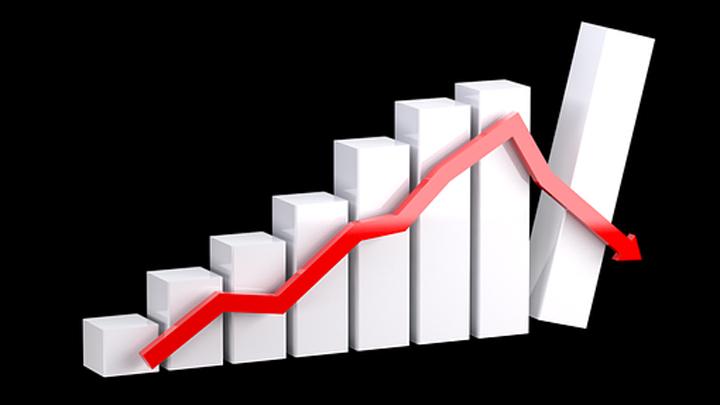
By: Jayanta Sarkar, an Associate Professor at Queensland University of Technology in Brisbane.
Recessions are part of the economic cycle. How you prepare can determine how badly affected you will be.
A recession can make or break a company or individuals.
Just ask Amazon.com, the online bookseller that survived the dot-com bubble burst in 2000 by raising funds just in time. Or ask millions of Australians who faced the country's first recession in 29 years due to the COVID-19 pandemic in 2020.
Recessions are hard to predict and avoid. They can be triggered by various factors, such as shocks, crises, policy errors or structural changes.
Therefore it is wise to prepare for a recession before it hits, rather than wait until it is too late.
Preparing for a recession can help you cope with any downturn, mitigate its impacts, and seize any opportunities that may arise.
Here are some tips on how to prepare for a recession.
Pay off or lower high-interest debt
High-interest debt, such as credit cards, personal loans or payday loans can quickly spiral out of control when income falls or expenses rise during a recession.
For instance, Australians had $45 billion in credit card debt in June 2020, with an average interest rate of 19.94 percent.
Paying off or lowering high-interest debt can save money, ease monthly payments and improve a credit score.
Save money for emergencies
An emergency fund can help when dealing with income loss, unexpected costs, or other financial shocks that may occur during a recession. It can also provide financial security and stability in uncertain times.
Ideally, people should aim to save enough money to cover at least three to six months of essential expenses, such as rent or mortgage payments, utilities, food and medical bills.
Check your investments
During a recession asset prices tend to fall across the board, but some may recover faster than others.
Having a diversified portfolio across different asset classes (such as stocks, bonds, cash), sectors (such as technology, healthcare) and regions (such as Australia, US) can reduce the impact of any negative event or trend that affects one part of the market.
By checking your investments, you can also find any opportunities to buy undervalued assets that may offer higher returns in the long run.
However, this requires careful research, due diligence and patience, as timing the market is very difficult and risky. You should also avoid selling your investments when prices drop, as this may lock in losses and miss out on potential rebounds.
Boost your professional value
During a recession, unemployment tends to rise, as businesses cut costs, lay off workers, or close down. This means competition for jobs becomes fiercer and employers become more selective and demanding.
The best way to enhance employability is to boost your professional value.
This can involve updating your skills and qualifications; expanding your network and contacts; seeking feedback and mentoring; and showcasing your achievements and contributions.
By boosting your professional value, you can increase your chances of keeping your job, finding a new one, or negotiating better terms and conditions.
For example, Germany used its well-known short-time work subsidy scheme Kurzarbeit during the Great Recession and COVID-19 recession.
This scheme allows employers to reduce working hours for their employees instead of laying them off while the government covers up to 67 percent (for workers with children) of their lost net income. Workers without children have 60 percent of their wages covered.
This helps preserve jobs, stabilise incomes, and maintain workers' skills during the crisis. It also reduces the need for retraining and rehiring when the economy recovers.
Adapt to changing consumer behaviour
Businesses can build resilience by adapting to changing consumer behaviour and demand.
During a recession, consumers tend to spend less, save more, and prioritise their needs over their wants. They also tend to shift their preferences towards cheaper, more reliable, and more sustainable products and services.
By adapting to changing consumer behaviour, businesses can retain their existing customers, attract new ones, and increase their market share and profitability.
This can involve offering discounts, bundles, or loyalty programs; improving quality, service, or delivery; and innovating new solutions that solve customer problems or create value.
For example, online shopping rose in Australia during the pandemic, as consumers avoided physical stores and sought convenience and safety.
Online retail sales increased by 55.7 percent in 2020 compared to 2019, reaching a record high of $50.5 billion.
Businesses that adapted to this trend by improving their e-commerce capabilities, offering contactless delivery options and expanding their product range online were able to benefit from the increased demand and customer loyalty.
Recessions are inevitable and unpredictable events that can have serious consequences for people and businesses.
However, by preparing for a recession before it happens, it's possible to reduce its negative effects and take advantage of its opportunities.
Originally published under Creative Commons by 360info™.
*) DISCLAIMER
Articles published in the “Your Views & Stories” section of en.tempo.co website are personal opinions written by third parties, and cannot be related or attributed to en.tempo.co’s official stance.























